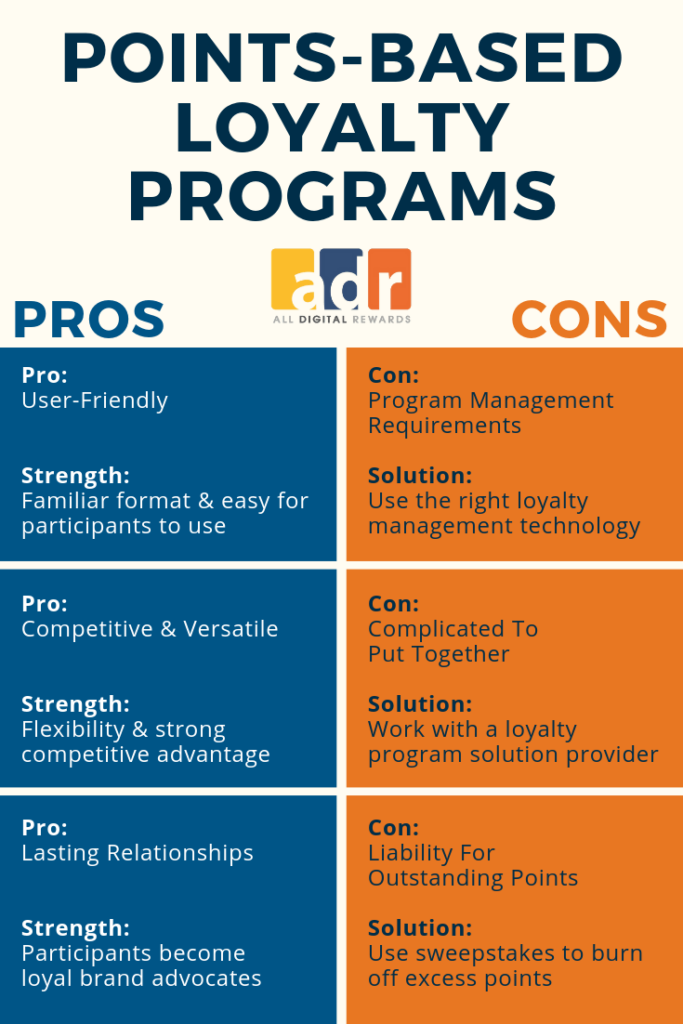Points-based loyalty programs have become a go-to solution for businesses looking to foster customer retention and increase engagement. These programs offer flexibility for both businesses and consumers, but they aren’t without challenges. Understanding the pros and cons can help you decide whether a points-based loyalty system is right for your business.

Pros of Points-Based Loyalty Programs
1. Flexibility in Reward Structure
One of the biggest advantages of a points-based loyalty program is its flexibility. Businesses can design a system where customers earn points for every purchase, social engagement, or referral. This makes it easy to tailor the program to fit your specific business goals. The flexibility in how customers can redeem points—whether for products, discounts, or prepaid cards—also increases the appeal.
2. Encourages Repeat Business
Points-based programs give customers an incentive to return, making them highly effective for driving repeat purchases. The more points they accumulate, the more invested they become in your brand. This creates a feedback loop that encourages ongoing engagement and boosts customer lifetime value.
3. Customization for Different Tiers and Goals
Businesses can create different reward tiers to motivate higher spending and deeper engagement. For example, a tiered loyalty system might offer increasing rewards as customers spend more, creating a competitive element that drives participation. This customization helps businesses meet various goals, whether boosting sales volume or improving customer retention.
Cons of Points-Based Loyalty Programs
1. Complexity in Design and Maintenance
While flexibility is a major benefit, it can also be a challenge. Overcomplicating your loyalty program with too many rules and tiers can confuse customers, reducing their willingness to participate. Simplicity is key to ensuring that customers understand how to earn and redeem points.
2. High Redemption Costs
If not carefully managed, a points-based system can lead to high redemption costs. Offering rewards that are too easy to achieve or too valuable can hurt your bottom line. Businesses need to strike a balance between offering attractive rewards and controlling costs to ensure long-term sustainability. Regularly analyzing redemption patterns and adjusting the point values for rewards can help manage costs.
3. Risk of Low Engagement Without Proper Promotion
Even the best-designed points-based program won’t succeed if customers aren’t aware of it. Poor promotion can lead to low participation, which will negatively impact your ROI. A robust communication strategy—via email, social media, and website notifications—is essential to keep customers engaged.
How to Maximize Your Points-Based Program’s Success
To avoid the common pitfalls of points-based loyalty programs, businesses should focus on simplicity, promote their programs regularly, and use customer data to personalize offers. Tracking KPIs like participation rates, average order value, and redemption rates will help fine-tune the program over time.




